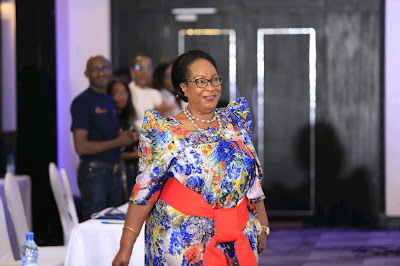Agora - a global public good will open new investment opportunities and foster opportunities for growth through facilitating connections between entrepreneurs and investors
watchdoguganda.com, Kampala, 31 August 2022 – The United Nations Capital Development Fund (UNCDF) in partnership with a network of public and private sector actors in Uganda have today launched a pilot of an ambitious platform known as Agora. Agora is a digital pathway that seeks to serve as a global public good by scaling up the sourcing of new investment lead opportunities in frontier, emerging and developing economies, such as Uganda.
YouTube Video | Ministry of Finance, Planning and Economic Development : 6th High Level Economic Growth Forum – Day 1
YouTube Video | Ministry of Finance, Planning and Economic Development : 6th High Level Economic Growth Forum – Day 2 👇🏾
This initiative builds on the Survey of Ugandan SMEs conducted by UNCDF with support from the European Union in 2020 in partnership with the Ministry of Trade, Industry and Cooperatives, Uganda Revenue Authority, and Makerere University. That research highlighted, among other things, the importance of access to affordable finance for sustainable economic development, especially for SMEs in value addition, agroindustry and manufacturing.
Uganda is one of the two countries where Agora will be piloted before the pathway’s global launch by the end of 2022. The Ministry of Finance, Planning and Economic Development (MoFPED), the Private Sector Foundation of Uganda (PSFU), and the Federation of Small and Medium-sized Enterprises (FSME) will support the pilot in Uganda.
“We have put out an open call for Ugandan-based entrepreneurs and business owners in need of financing to seize this opportunity and register on the platform,” said Dmitry Pozhidaev, the Country Head of Office, UNCDF. “Through putting entrepreneurs in position to connect with investors and other actors in the capital markets, we believe that Agora will provide a much-needed and long overdue opportunity for local businesses to partake in the global financing arena.”
“There are many entrepreneurs and businesses that are ready to acquire the necessary financing to grow their businesses. For many of them, the only obstacle in the way is the market they happen to be operating in,” said Xavier Michon, Deputy Executive Secretary of UNCDF. “Agora will bridge the information gap that prevents investment finance from reaching promising projects in the world’s frontier, emerging, and developing markets. By bridging this gap, Agora will help deliver critical lifelines of capital to the businesses, entrepreneurs and communities that have been underserved by the global financial architecture.”
Agora intends to provide investment managers with innovative lead sourcing, screening flexibility, direct connection to principals and a possible collaboration with co-investors. Likewise, capital seekers will have access to similar functionalities to connect with capital providers and will be able to make themselves known to investors, companies in their ecosystem and other partners. This will give entrepreneurs in the targeted economies visibility to investors all over the world, making access to local, regional, and global non-traditional financing easier.
As a global public good, Agora will also facilitate connections between entrepreneurs from frontier, emerging and developing economies with prospective partners, including investors, who can provide critical knowledge, technical support, and capital to foster opportunities for growth. Agora also relies on a newly established network with a wide range of like-minded public and private entities interested in supporting and expanding impactful investments in the said economies. The Agora network includes Ernst & Young, the International Chamber of Commerce, Quantcube, FirstRand, IdealPrediction and Business Africa among other institutions.
SUPPLEMENT




























.jpeg)
.jpeg)
